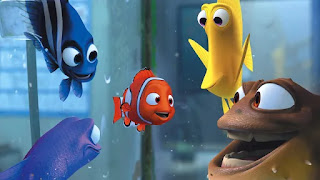MOANA
 |
| MOANA |
It has not even been released but the new Disney movie, "Moana", creates controversy in the Pacific, where the legendary animation studio is accused of contempt and cultural looting. (See Advance of "Moana: a sea of adventures").
The animated film directed by John Musker and Ron Clements, whose original title in English is "Moana" and which in other countries will be titled "Vaiana", tells the story of an intrepid teenager of 16 years. So far everything is fine, except that in its journey the protagonist is accompanied by Maui, a legendary figure in the mythology of various cultures of the Pacific. Its representation and commercial exploitation by Disney has provoked outrage.
In a short time the study has faced a series of controversies, the last one by a Halloween disguise of the "demigod" that had to be withdrawn from the market due to criticism that it was a racist representation.
In June, when the first images of Maui were released, they had already caused discomfort in Polynesia. His representation as a corpulent figure was perceived as cliche in a region, where obesity is a public health problem.
The last straw that broke the camel's back was Disney's attempt to profit from a mythological figure that some cultures consider to be an "ancestor".
The full-body costume includes the tanned and tattooed skin of the legendary being, dressed in a loincloth of leaves and adorned with a necklace that imitates shark bones. There the study touched a sensitive fiber.
Disney went too far
In the culture of Polynesia, tattoos tell a personal story. If reproducing these intimacies is considered disrespectful, doing it for commercial purposes is already an insult.
Many inhabitants of the Pacific Islands criticize Disney's pursuit of profits went too far and that brushes greed and bad taste.
For Marama Fox, leader of the New Zealand Maoist Party, the US group seeks to "make money thanks to the history and beliefs of others."
"It's the same as printing the image of one of our ancestors on a shower curtain or a bottle of beer," said Fairfax Media.
Some voices on the internet reported that this bronzed skin disguise was equivalent to the theatrical cartoons made by whites with the painted face of blacks in the United States.
The New Zealand Human Rights Commission ruled on the information portal stuff.co.nz after criticism.
"We hope that Disney will understand the opinions of the communities and peoples that characterizes in the film," the commission said.
In the midst of criticism, there are some supporters of the film. The New Zealander journalist of Samoan origin, Madeleine Chapman, is one of them.
"After years of seeing small Samoan 'Spider-Man' and 'Batman' tanned on birthdays, would it really be unbelievable to see white children disguised as polynesian heroes?" He wrote on thespinoff.co.nz page.
On Thursday, Disney decided to step back.
"The 'Moana' team took great care in respecting the cultures of the Pacific islands on which the film is inspired and we regret that Maui's disguise may have been offensive," the group said in a statement.
"We present our sincere apologies and remove the disguise from our stores," the study said.
At the Annecy animation film festival, in June, John Musker and Ron Clements had been very open towards the culture of the Pacific.
To prepare the film and immerse themselves in the local culture, the two authors and their teams made long trips to the islands of the Pacific, where they met with anthropologists.
"These trips completely modified our perception of the story we want to tell," said John Musker. "We wanted to tell what happened there 3,000 years ago, the Maoris were very good navigators who moved on the sea by instinct, they managed to connect the oceans."



Comments
Post a Comment